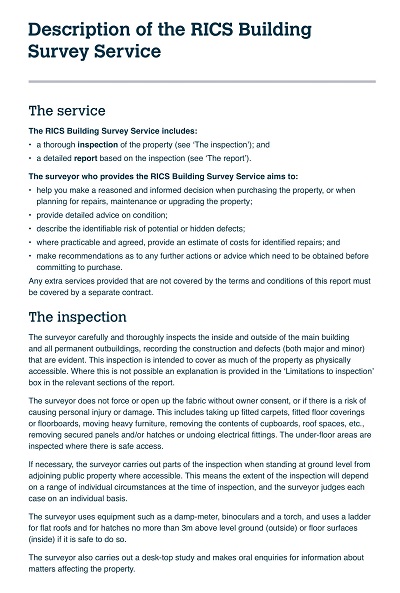This Art and Science of Land Surveying: An Thoroughly Detailed Manual

Land surveying is both an craft and a science that plays a important role in the development and administration of land. Whether it involves establishing property boundaries, setting up for new building, or performing environmental assessments, expert surveying assistance are integral to ensuring preciseness and adherence in various real estate and construction projects. In an ever-evolving landscape shaped by technology, understanding the importance and complexities of surveying is essential for homeowners, construction developers, and planners alike.
This comprehensive guide delves into the diverse world of surveying services, showcasing the top reasons to employ a qualified surveyor and what to expect during a land survey. From the different types of land surveys to the critical role they play in preventing disputes and ensuring adherence with zoning laws, this piece will provide you with important insights into the surveying process. We will also discuss the latest technological advancements, including GPS and drone utilization, and how they are transforming the industry. By the end of this guide, you will come to understand the indispensable role that surveying services play in safeguarding property rights and enabling informed choices in property transactions.
Important Factors to Contract a Surveyor
When commencing on any real estate project, hiring a skilled surveyor is crucial for reliable information. Surveyors hold the professional capabilities and tools necessary to define precise boundaries, identify property lines, and assess land characteristics. This degree of accuracy not only ensures compliance with state regulations but also assists prevent significant disputes between property owners. With Building Reports Croydon South London , surveyors can provide advice that help you make wise decisions about land use, development, and investment.
One of the primary pros of hiring a surveyor is their skill to detect potential issues before they grow. For example, a thorough boundary survey can reveal encroachments or easements that could influence your property rights. This forward-thinking approach can spare you from legal headaches and further expenses down the road. Furthermore, accurate surveys are often needed by lenders and insurers, making them a crucial step in obtaining financing and protecting your investment.
In conjunction to legal and financial advantages, hiring a surveyor adds to overall project efficiency. Surveyors collaborate closely with architects, engineers, and construction teams to ensure that plans are feasible and comply with zoning laws. Their knowledge is particularly important in complicated projects where accurate measurements and planning are critical. With a professional surveyor on your side, you can confidently maneuver the complexities of land development and concentrate on bringing your vision to life.
Key Types of Land Surveying Explained
Property surveys are crucial methods that determine the spatial and juridical boundaries of a property. One of the typical types is the boundary survey, which establishes the precise boundaries of a parcel based on deeds. This form of survey is important for addressing disputes between neighbors and making sure that property owners understand exactly what they possess. It usually involves measuring lengths and angles to produce an exact depiction of the area, marking out boundaries with stakes or flags.
A further important type of survey is the topography survey, which concentrates on the physical and artificial characteristics of a piece of land. It records the elevation changes, contours, and physical characteristics, such as trees, structures, and bodies of water. This knowledge is critical for builders and designers, as it helps in planning construction developments and comprehending how drainage and other environmental factors affect the site. Topographic surveys provide a detailed layout for envisioning potential projects and making certain that construction complies with local regulations.
ALTA/NSPS surveys are comprehensive evaluations that follow national guidelines, primarily used for commercial properties and real estate transactions. These surveys include not only boundary lines but also information about existing access rights, improvements, and zoning challenges. They give buyers and lenders essential understanding into the real estate, minimizing risks associated with ownership. Grasping the differences between various surveys assists property owners to make educated choices about their investments and reduce legal concerns.
The Role of Land Surveying in Property and Development
Surveying plays a crucial role in property and development, serving as the basis for profitable property projects. Precise land surveys provide essential data regarding property boundaries, elevations, and site characteristics, which help builders make informed decisions about land use and design. By analyzing the topography and natural features of a site, developers can optimize their plans, guaranteeing compliance with zoning laws and enhancing the project's overall success.
In development projects, surveying is critical to working together with various participants, including designers, technical experts, and builders. Surveyors provide thorough maps and data that inform site layout, grading plans, and utility installations. This coordination helps simplify the construction process, minimizing costly mistakes and guaranteeing that the project adheres to all regulations. Furthermore, these surveys are important in evaluating potential environmental impacts and guaranteeing adherence to state and federal regulations.
Finally, accurate surveying can significantly increase property value by preventing disputes and addressing potential issues before they escalate. By defining clear boundaries and identifying easements, surveyors protect property rights and foster clear communication among property owners and developers. This forward-thinking approach reduces the likelihood of legal challenges and promotes understanding in property development, benefiting all stakeholders and contributing to a positive project outcome.

